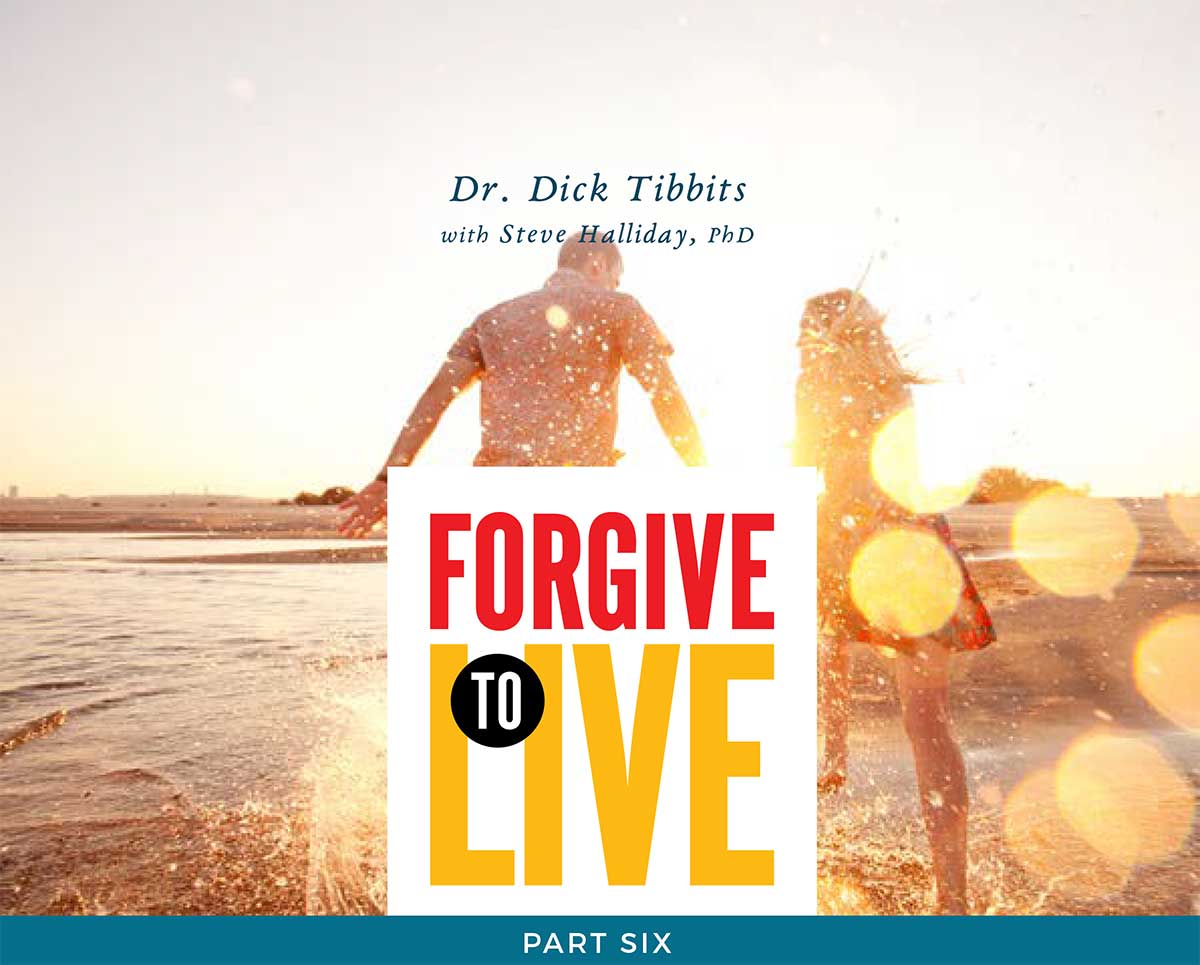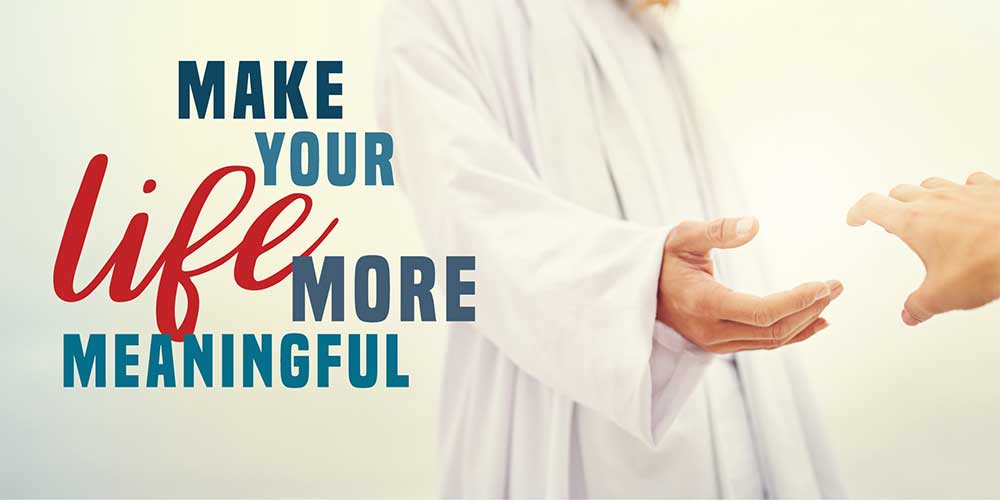
Personal Forgiveness
When you are your own worst enemy
For your Convenience
To participate in this six part series on Forgiveness you can either watch the video below, read the excellent content on this page or do both. We hope this journey is as rewarding for you as it has been for us.
– Hope Channel –
Patricia did her best to be the perfect mother and wife. She gave up her professional career to support her husband. Patricia was always available to attend any of her husband’s work-related functions.
Together they had two wonderful boys. Patricia devoted herself to her children. Given how attentive Patricia was to everyone else’s needs, you might believe that everyone lived happily ever after. But they didn’t.
Patricia’s husband spent endless hours at work, leaving Patricia alone to raise the kids. Patricia was overprotective and needed to know everything her boys did. Some of her concerns were appropriate, but she could become overbearing. Her children both loved her and resented her at the same time, while her husband simply became more and more distant.
As the kids grew up, one developed a drug problem and the youngest became a mummy’s boy who lived at home without a job. Not the perfect family Patricia expected!
Patricia blamed herself for all her children’s problems, while at the same time, she harbored anger toward her husband for not being around more to help with the children. Patricia obsessively focused on the things she did wrong. Maybe she didn’t let her boys play enough with the other boys or maybe she pushed too hard for her kids to do better in school. If only she would have been more encouraging rather than so critical!
Patricia found that when things went wrong, she would blame only herself. Her guilt and shame over her failures in life began to overwhelm her. The one thing she could not do, yet the one thing she most needed to do, was to forgive herself.

God may forgive your sins, but if you don’t, your nervous system won’t.
What You Need To Know
The biggest barrier to self-forgiveness may be your own resistance to it. It’s not simply that you feel bad because you know you’ve done wrong. You wrap yourself in your own guilt, as if it were a comfy blanket. And while your guilt blanket may be destroying your life, you continue to hold on to it for reasons you may not fully understand.
Yet forgiving yourself, while difficult, is absolutely essential. Suicide, eating disorders, substance abuse, and depression all are linked to the inability to forgive oneself.
Perhaps you can justify forgiving others, yet you find no justification for forgiving yourself. Perhaps you believe you must pay some steep price, some form of lifelong penance for your wrongdoing. And so you hold on to your guilt and self-condemnation.
Not forgiving yourself for your mistakes can be considered a form of pride. Whenever you hold yourself to a different set of rules, a higher set of standards than you do for others, pride is the reason. When you can forgive others but not yourself, you are in effect saying that you are less capable of making a poor decision than others. You are somehow wiser, better prepared, and more careful than others, so you are without excuse and therefore should not forgive yourself. Such logic is absurd, but it is more common than you may expect.

Instead of dwelling on the past, focus on the present and prepare for the future.
Some may even try to use their bad feelings to ward off the consequences of their actions. Such individuals wrap their guilt blanket tightly around them and say, “Look how terribly I am suffering! I don’t deserve any more difficulty than this.” Instead of taking responsibility for what they’ve done by trying to repair the damage or make things right, they unconsciously decide to punish themselves by feeling miserable for the rest of their lives. But this does nothing to make the person wronged feel better . . . and it certainly will not help you.
Unfortunately, the decision to feel miserable for the rest of your life can have tragic consequences, and not always in obvious ways. Misery loves company. If you keep beating yourself up, then the person who tries to help you is going to get beat up too. It’s inevitable. Anyone who wallows in guilt is going to become more withdrawn, more critical, and less open than normal. So whoever’s around—your spouse, your children, your parents, or your friends—is going to suffer right along with you.
Forgiving yourself means letting go of what you are holding against yourself so that you can move on. It is the decision to set yourself free. It’s exhausting to harbor hatred toward yourself. Every bit of energy you give to your regrets robs you of the energy you could use to improve your life.
Avoid talking about your wrongdoings and how bad a person you are around other people. They may come to believe you.
Choosing Forgiveness
Life is full of choices, and every choice you make will either move you in a positive direction or rob you of the opportunity to be your best. Forgiveness is a choice that takes courage and strength, and it gives you the opportunity to become an overcomer rather than remaining a victim of your own self-defeating thoughts and feelings.

The Journey Towards Self-Forgiveness
So what can you do to start your journey towards self-forgiveness? Consider a few things you can try when your guilt is based on something you did wrong.
1. Name the offense: Naming the offense begins the forgiveness process. It allows you to break down the overwhelming, jumbled feelings into manageable parts. Ask yourself, “Am I feeling this way because the outcome makes me feel bad, or am I feeling this way because I am to blame for my actions?” By asking these and similar questions, you can assess what you did and get a little emotional distance from the event.
2. Share it with someone you trust: Articulate the specific wrong you committed and the harm it caused. Tell a couple of trusted individuals about what you did, looking to them for support, care, and advice. Sharing reminds us that everyone makes mistakes. It is easy to think you are all alone and unique in your suffering, but this only makes healing more difficult.
3. Know what you want: You may not necessarily want to reconcile with the person you hurt; you may want only to get rid of the guilt by making things right. Or you may desire to rebuild the damaged relationship. Be clear from the start about what you hope to achieve so you can know where you are going and if you are getting there.

4. Reduce unrealistic expectations: Most of us have a set of unconscious rules hovering in the back of our minds about how we expect ourselves to behave. But those rules, many of which we’ve absorbed in childhood, are not always realistic. Challenge your self-imposed rules and discard those that don’t make sense.
5. Identify the hurt: Realize that the hurt feelings and accompanying guilty thoughts you feel whenever you think of your offense are what’s making you feel bad. It’s your reaction to it today that’s causing a problem, and that is not determined by the past, but by the choices you make right now. Will you choose to relive the guilt or will you choose to forgive?
6. Don’t dwell on it: It’s common to fall into self-inflicted despair when you make a mistake. We spend more time worrying than mending, more time and energy thinking about the things we can’t change than the things we can. Replaying what you did, over and over again in your head, isn’t going to help you or the person you hurt. It just makes you feel bad. So every time you catch yourself ruminating on your faults, stop and refocus your attention on something more useful you can do that will make a difference.
7. Say you’re sorry: When you can’t forgive yourself because of something you’ve done, sometimes all it takes is a sincere apology to make things right. Apologies are most effective if made in person. But if that’s not possible, consider writing out your apology. You can decide later if you want to send the note, if that’s even possible.
Do good rather than feel bad.
8. Make it right: Just as you probably wouldn’t forgive someone else until they have made it up to you in some way, so you may need to make things right before you can forgive yourself. So how do you know when you’ve adequately paid your dues? Receiving forgiveness from the other person is usually a good sign that your efforts are adequate, but it’s ultimately up to you to decide when you’ve done enough to right a wrong. If you can’t repay the debt, then do something helpful or be kind in some way to those you have hurt. Even if the person you hurt is dead or otherwise absent from your life, you can still make up by providing kindness to someone else.

9. Let people in: When we mess up, we either run away from friends and family or we seek their support. While running away may appear to be the best option for many reasons, it should be only temporary. Alienating ourselves from others when our wounds are still fresh usually leads to scars that go long and deep. We need people to rely on, especially friends and family. We need to have shoulders, ears, minds, and hearts to lean on, listen, and understand us. We benefit by people close to us as they help us muster the strength to put ourselves back together when we can’t muster it on our own. Forgiving yourself is also important for those in your sphere of influence. Hurting people hurt others. The longer you avoid forgiving yourself, the longer you allow yourself to harbor the feelings that you deserve to suffer for what you did, the more explosive you will become, and the more apt you are to hurt those around you.
10. Understand that your mistakes do not define you: No one has ever gone through life without messing up something. Mistakes are normal, a part of life. You are not perfect, and if you ever think you are, you are setting yourself up for failure. You will never be perfect, so stop trying. But you can do your best, and when you believe that is good enough, then you will feel less guilty about your shortcomings. The key is to know that your life is getting better. What you need today is the courage to keep trying and to keep moving forward toward a brighter future.

Shame, the Cousin of Guilt
So far we have dealt with guilt that has some basis in fact. But for many, this is not the real problem, for lying beneath guilt is its cousin, shame. Feeling bad when you did something wrong is natural, and even useful. Without it, where would you find the motivation to do better next time? But not all bad feelings are beneficial.
One forgives others to the degree that one forgives oneself.
While guilt is an appropriate response when you have done something wrong, shame, on the other hand, is based not on what you have done wrong but on what others say is wrong about you. And believing those messages can devastate you, as you can do nothing to right this ship. If left unchecked, shame will erode your self-worth.
Shame causes you to feel inferior, inadequate, or bad about who you are, versus what you did. Shame isn’t constructive. Instead of enhancing empathy and self improvement, it has the opposite effect. It leads to greater self-deprivation. Feeling like you’re a bad person at your core can undermine any efforts to change, as change may not seem possible to someone crippled by shame. People often judge themselves based upon the blame or false accusations coming from others, which over time, they believe to be true. And over time, shame will erode self-worth.

Accept that failures do not make you a bad person.
Once you suffer from low self-esteem, it’s common to take the blame for others’ behaviors and for their low view of you. A spouse, for example, might accept her husband’s blame and feel guilty for his drinking problem. Victims of abuse or sexual assault frequently feel guilt and shame, even though they were the victims and not the perpetrators. Those initiating a divorce often feel guilty, even if their partner’s actions largely caused their marital problem. Because you struggle to accept yourself does not mean everyone else does, too. Healthy people can accept you as less than perfect because they accept themselves on the same terms.
Remember that you are no better or worse than anybody else. As the saying goes, “We all put our pants on one leg at a time.” While your struggles seem obvious to you, you probably know far less about the struggles of others. The truth is that we all have hills to climb and valleys to walk through. The key is to refuse to do it alone or to believe you are all alone with your difficulties. If you need to forgive yourself, then the best time to start is now. And if you need additional help, don’t hesitate to reach out to a friend or a professional so you can let go and move on.

Tapping into the Power of Forgiveness
Now that we are nearing the end of this course, I invite you to take the following True and False test to clarify your current understanding about forgiveness:























